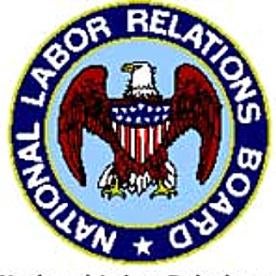Long-standing labor law has set forth criterion as to when an employer is a statutory successor to a prior employer and what, if any, obligations are owed by such a successor to a union which represented the predecessor’s employees. Generally, the question of successorship status is determined by whether a majority of the subsequent employer’s workforce at a facility is composed of employees who were represented by the union while employed by the predecessor. If they were, then the second employer must recognize and bargain with the union over the employees’ terms and conditions of employment.
Unless the second employer has committed to offer jobs to the incumbent workforce, it normally is free to set its own terms and conditions of employment. Then, once a representative complement of workers has been hired, the determination is made as to whether the second employer has an obligation to bargain with the union. On the other hand, if the second employer has committed to offer jobs to the incumbent workforce, then it will have an obligation to recognize and bargain with the union and must maintain the terms and conditions of employment of the predecessor pending the results of subsequent negotiations. The second employer, however, is never obligated by law to adopt the prior employer’s collective bargaining agreement, although such an obligation may be agreed to contractually.
It is unlawful for a subsequent employer to refuse to hire employees of a predecessor because such employees were represented by a union, thereby preventing the union from obtaining majority status and bargaining rights on behalf of the new workforce. If the NLRB finds that a successor employer has discriminated against employees to defeat union status, the employer will be deemed to have forfeited its right to set the initial terms and conditions of employment. In that case, the employer will be ordered to hire the discriminated employees and make them whole for lost wages and benefits. It will also be required to recognize and bargain with the union until a contract is reached or impasse is achieved, and it will be required during negotiations to restore the status quo (the employees’ terms and conditions of employment as they existed with the predecessor employer), for example, by rescinding any unilaterally imposed change in their terms and conditions of employment.
In the past, an employer in such a scenario was permitted to limit its liability by showing that, even absent the unfair labor practices, if it had recognized and bargained with the union, it would not have agreed to the monetary provisions of the prior union contract or that, at some identifiable time, it would have reached impasse or a contract on less favorable terms than as existed in the predecessor’s contract. Planned Building Services, 347 NLRB 670 (2006).
Successorship avoidance cases have long been recognized to leave the Board with less than perfect remedial options because competing fundamental interests are at play: remedying a wrong while avoiding a punitive remedy. The Obama Board recently reviewed Planned Building Services and concluded that permitting a wrongdoer, through what was largely speculation, to reduce its liability and establish what terms and conditions would have been agreed to by it and the union had it not violated its duty to bargain, was contrary to the Board’s long-standing resistance to speculation about what would have occurred in lawful bargaining and would permit the wrongdoer to benefit by its conduct. Thus, in Press Room Cleaners, 361 NLRB 57 (2014), the Board overruled Planned Building Services and held that, when a successor violates the Act by unilaterally changing the predecessor’s terms and conditions of employment, the make-whole remedy will include restoration of the predecessor’s terms and conditions of employment until the parties bargain in good faith to an agreement or impasse. Such an employer will no longer be permitted to attempt to prove what the terms and conditions would have been if it had initially complied with its obligation to bargain in good faith.
The Press Room Cleaners decision obviously is applicable only to a limited number of cases arising out of a narrow factual scenario. It also is consistent with the Board’s position that employees make-whole relief in successorship avoidance cases does not include increases in wages and benefits that would have been agreed to in bargaining had there been no unfair labor practices. This decision, however, does reverse existing precedent and continues the trend of the Obama Board to create uncertainty in the workplace by changing existing law.



 i
i


